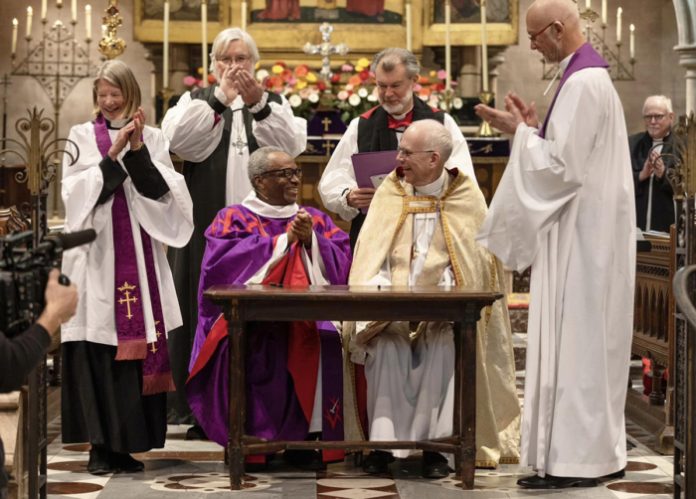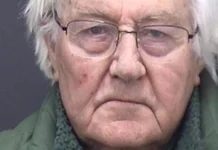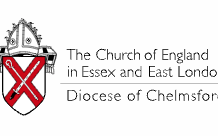During a Liturgy of Thanksgiving on March 27, Presiding Bishop Michael Curry, primate of The Episcopal Church, and Archbishop of Uppsala Martin Modéus, primate of the Church of Sweden, signed a memorandum of understanding, establishing a full-communion relationship between the two churches.
“Our churches have been friends for so long [a] time, and this is the day for signing the agreement,” Modéus said at the start of his sermon. It is church and spiritual history, but more importantly, “spiritual future.”
“Every time two or more churches sign agreements or agree theologically, spiritually in any form, I think the angels in heaven rejoice and today we rejoice with them … and we have a lot to do in this world,” he said, referring to the day’s Gospel reading, Matthew 9:35-38. “The harvest is plentiful but the laborers are few.”
The memorandum of understanding, known informally as the “Paris agreement,” was approved in 2022 by both the General Convention of The Episcopal Church and the Church of Sweden’s General Synod. The service last week brought together the primates, as well as ecumenical guests.
For a long time, the Church of Sweden — the Evangelical Lutheran Church in Sweden, which was until 2000 the state church — has had a good relationship with The Episcopal Church, Modéus told Episcopal News Service. “And it’s important to get it written down. And there’s this meeting [that happens] between churches, it teaches something. We learn practical things, but also get to see ourselves in new ways,” he said. “It’s a blessing of God that we are different and it’s a sign of the diversity of the church, and it’s good for us all.”
Ecumenism, by definition, implies that Christians form relationships and work together in common mission and toward unity. In the document, the churches acknowledge in five specific points what they have in common, including sharing confession of the apostolic faith. Further, they make nine commitments, including establishing a group to nurture growth in communion and regarding baptized members of each church as members of one’s own.
“In Jesus’ prayer in John 17 at the Last Supper he prays for his followers that they all might be one … and I think what’s behind that is the conviction that in God’s dream from the very beginning that human beings would come together as God’s family, as his beloved community. That was the hope, the intention that they might all be one,” Curry told ENS on the morning of the agreement’s signing.
“I think what Jesus was saying was that I want my followers to reflect the dream of God, that all people might be a family and care for each other. All our ecumenical and interfaith relationships are part of what we pray may be a movement to bring us together in deep relationships, that overcome the divisions from the past, and that’s God’s work of reuniting family.”
Though full-communion discussions began in the early 1900s, momentum picked up in the early 2000s when an Episcopal church in Waterloo, Belgium, which for 25 years had worshipped in a Roman Catholic church, began looking for new worship space, the Rt. Rev. Pierre W. Whalon, who served as bishop-in-charge of the Convocation of Episcopal Churches in Europe from 2001 to 2019, told ENS.
As it happened, he said, the Church of Sweden had a building to sell, and through that experience, he got to know the church’s leaders personally. “I’d always known that we should have been in full communion because we’d always acted as if we were.”
In 2009, the 76th General Convention passed a resolution directing the Standing Commission on Ecumenical and Interreligious Relations to begin a dialogue with the Church of Sweden, with the goal of establishing full communion.
Later, Whalon invited the Rev. Christopher Meakin, then the ecumenical officer for the Church of Sweden, and the Rev. Tom Ferguson, who was then The Episcopal Church’s ecumenical officer, to Paris for three days of conversations. A study document regarding the history of the two churches’ relationship was commissioned during this meeting, culminating in the Report on the Grounds for Future Relations Between the Church of Sweden and The Episcopal Church, which was twice acknowledged in 2015, first by The Episcopal Church in June during the 78th General Convention in Salt Lake City, Utah, and in November by the Church of Sweden’s General Synod meeting in Uppsala.
In 2018, the 79th General Convention acknowledged and affirmed the existence of a full communion relationship with the Church of Sweden and called on the 80th General Convention to present a memorandum of understanding setting forth the terms and procedures of that full-communion relationship.
“I’m a very happy man today. This is going to go places we haven’t even imagined yet,” Whalon said following the signing of the agreement last week. In reality, the agreement, he added, could be said to have begun back in the 18th century in New England, with the affiliation of seven Swedish Lutheran churches with The Episcopal Church.
“It all started all the way back in the 18th century, when Swedish congregations in America needed the services of Episcopal priests and Swedish priests helped out in Episcopal congregations,” Meakin, of Sweden, said during the service. “This shared service continued in various forms through the centuries and has also been expressed in ecumenical contexts where we’ve been able to do things together.”
The “Paris agreement,” he said is a “confirmation of the growing fellowship between Anglicans and Lutherans in different parts of the world.”
Meakin referred to the Porvoo Communion, a 1992 agreement among the British and Irish Anglican churches and the Nordic and Baltic Lutheran churches to “share a common life in mission and service,” and Churches Beyond Borders, the agreement uniting Episcopalians and Lutherans in the United States with their Anglican and Lutheran counterparts in Canada.
“We’ve had over 200 years of shared worship and ministry on both sides of the Atlantic,” the Rev. Margaret Rose, The Episcopal Church’s officer for ecumenical and interreligious relations, said during the service.
Over the last century, she added, both churches have had common international full-communion partners, referring to the Philippine Independent Church and the Union of Utrecht Old Catholic Churches, as documented in the 2015 report.
The newly signed agreement is related to the global church and the kind of work Episcopalians and Lutherans can do together, Rose, told ENS.
“There’s a whole group of Lutherans who have not only similar theologies but also a similar commitment to peacebuilding, to justice to the kind of work that we’re all trying to do together,” she said.
“I felt like I’d just been to a wedding. I feel like we [the two churches] just got married,” Rose said. “And in a certain sense, that’s right. And you have to make this agreement stick. … If you don’t you can continue to be [like] roommates. But if you really begin to do something, then I think you can make it worth something in the world. As Archbishop Modéus said, ‘if we’re looking to survive as a church, forget it. If we’re looking to do something that makes a difference in a world that is at war,’ then OK.”










